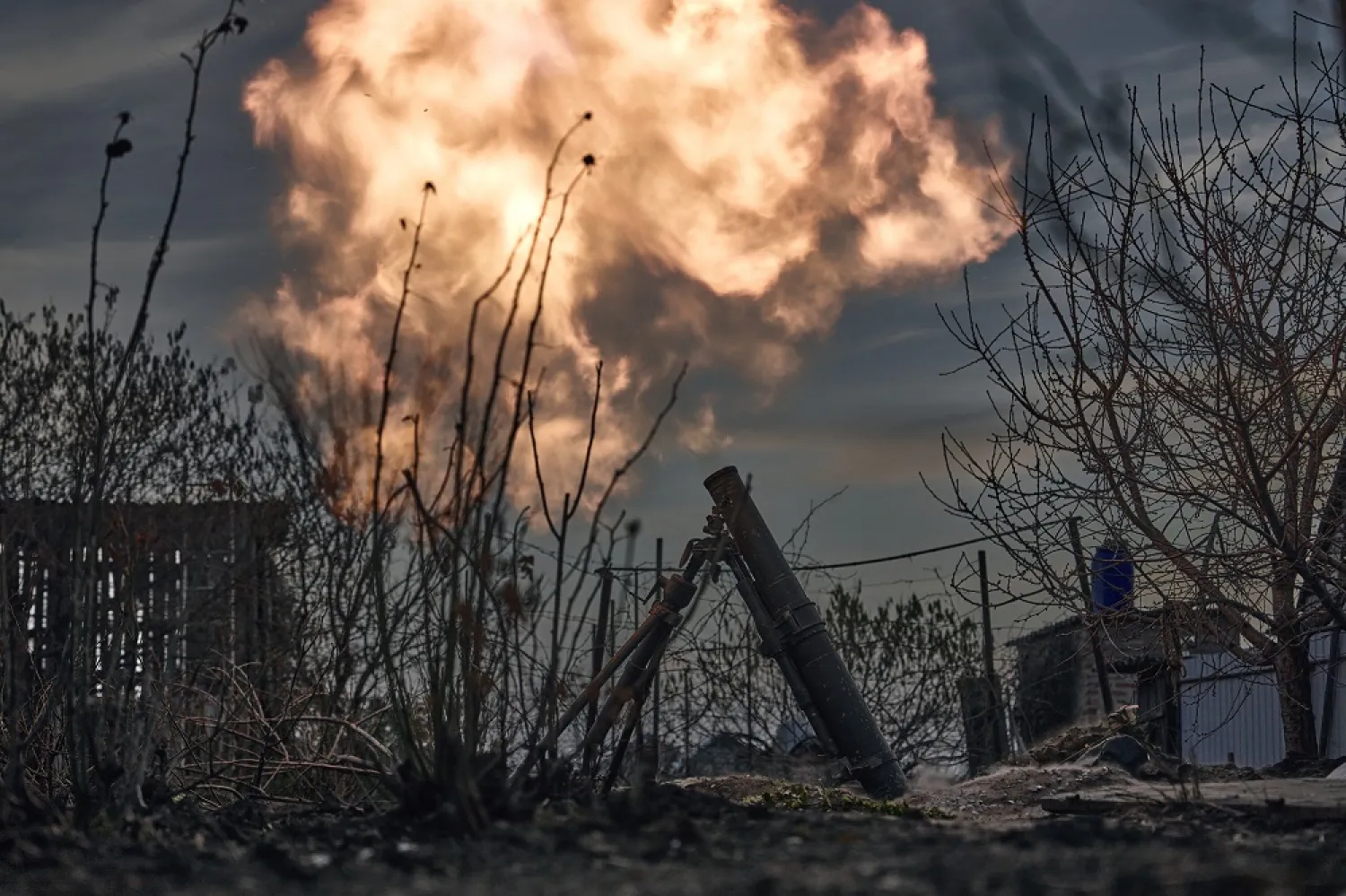Ukraine struck a railway depot and knocked out power in the Russian-occupied city of Melitopol, deep behind the front line, on Wednesday amid growing talk from Kyiv of a counterassault against Russian forces worn out by a failed winter offensive.
Unverified images on the internet showed explosions lighting up the night sky with streaks of contrails in Melitopol, base of the occupation administration in Zaporizhzhia, one of five Ukrainian provinces Russia claims to have annexed.
Ukraine's exiled mayor of the city confirmed that there were explosions there. Russia's state TASS news agency, citing Moscow-installed officials, said a railway depot was destroyed and power knocked out to the city and nearby villages.
Melitopol, with a pre-war population of around 150,000, is a railway logistics hub for Russian forces in southern Ukraine and part of the land bridge linking Russia to the occupied Crimea peninsula.
There was no public information about the weapons Ukraine could have used for the strike. The city is at the far edge of the range of Ukraine's HIMARS rockets but well within the range of newer weapons it is said to be deploying, including air-launched JDAM bombs and ground-launched GLSDB munitions promised by the United States. Russia said it shot down a GLSDB on Tuesday, the first time it has reported doing so.
The strikes come as Kyiv has suggested it could soon mount a counterattack against Russian forces who have failed to secure any big victories in a months-long offensive that saw the bloodiest fighting of the war.
Melitopol is south of the Zaporizhzhia nuclear power plant, located on the Russian-controlled south bank of a huge reservoir that serves as the front line. The head of the International Atomic Energy Agency, Rafael Grossi, who has called for a safe zone around the plant, was due to reach it on Wednesday after having met President Volodymyr Zelenskiy on the Ukrainian-held bank.
Russian assault fails to make gains
Ukrainian forces have stuck mainly to the defensive since their last big advance nearly five months ago. In that time, Moscow has launched a huge winter assault using hundreds of thousands of reservists and tens of thousands of mercenaries recruited mainly as convicts from prison.
But as the winter turns to spring, the question is how much longer the Russians can sustain their offensive and when will the Ukrainians strike back.
There are clear signs the Russian offensive is flagging. The average number of daily Russian attacks on the front line reported by Ukraine's general staff has declined for four straight weeks since the start of March, to 69 in the past seven days from 124 in the week of March 1-7.
Reuters journalists near the front lines west of Bakhmut and further north also reported a notable decline in intensity of Russian attacks last week.
The Russians have made no significant gains despite huge casualties on both sides, and Ukrainian and Western officials say they suspect the Russian attacking force will soon be spent.
Russian officials say their forces are still capturing ground in street-by-street fighting inside Bakhmut, the small eastern city that has been their main target for months. But they have failed so far to encircle it and force the Ukrainians to withdraw, as had seemed likely weeks ago.
British military intelligence said on Wednesday the Ukrainians had successfully pushed the Russians back from the main supply route.
This past week Moscow unleashed a new attack on Avdiivka, a smaller city further south, but Britain said that also had failed to make gains, while leading to huge losses in Russian armor including one tank regiment that had lost many of its tanks.
The past week has seen the arrival of the first full units of Western main battle tanks, promised with fanfare two months ago to serve as the spearhead of Ukraine's big counteroffensive when the warm weather dries its notorious sucking black mud.
In an apparent response to the arrival of Western tanks, Russia's RIA news agency reported that Moscow had sent its troops hundreds of new and refurbished tanks of its own.
Zelenskiy has visited front line provinces across the country in the past week. He toured formerly Russian-occupied territory and trenches near the Russian border on Tuesday in northern Ukraine.
Russian missile exercise
Away from the battlefield, Russian ally Belarus said it had decided to host Russian tactical nuclear weapons as a response to Western sanctions and what it said was a military build-up by NATO member states near its borders.
Moscow has repeatedly pointed to the threat that the war could turn nuclear. Western government largely dismiss that as an attempt to intimidate them into rolling back military aid for Kyiv.
US President Joe Biden called the prospect that Russia would place nuclear weapons in Belarus "worrisome" but the United States has said it has not seen any indications that Russia was closer to using tactical nuclear weapons in Ukraine.
In Moscow's latest brandishment of its nuclear strike capability, Russia's defense ministry said on Wednesday it had begun exercises with its Yars intercontinental ballistic missile system involving several thousand troops.
The missiles are designed to carry multiple nuclear warheads and can reach the United States.









